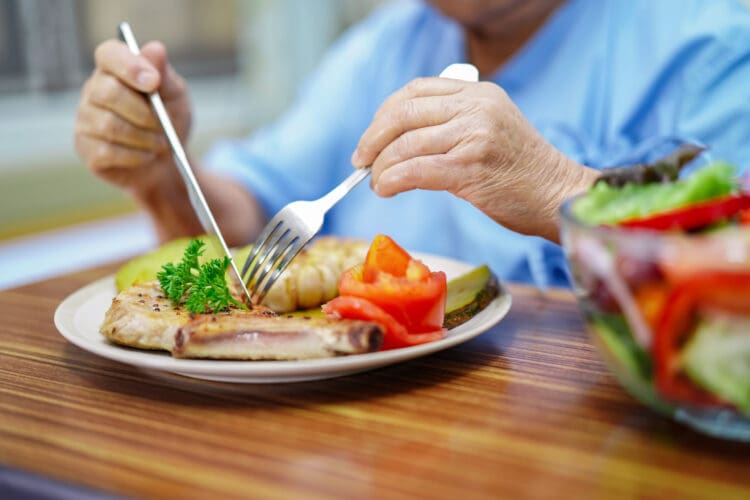How important is your diet when it comes to overall mental health, physical strength, and immune system function?
It may seem like a no-brainer, but the answer is: very!
Our food can often directly influence our mood. In fact, medical professionals have found that a large number of people who suffered from depressive disorders also suffered from brain inflammation, which had its roots in poor diet.
Diets rich in junk food, sugary products, and unhealthy carbohydrates often lead to dietary inflammation that stresses out our bodies and lowers our moods. Healthy foods allow us to maintain optimal sugar levels, build and maintain a strong immune system, and manufacture good bacteria in our gut.
Perhaps you or a loved one have already taken that first step toward sobriety. Whether you’re in treatment, supporting someone in treatment, or continuing life post-treatment, health, wellness, and nutrition are crucial facets of getting and staying off substances–and maintaining a healthy body ready to fight infections and repair itself.
Maybe you’re wondering if people in recovery are less healthy than people who don’t suffer from a substance use disorder?
Unfortunately, individuals with substance use disorders are more susceptible to falling ill. In general, people living with addiction have, on average, less access to health care. They deal with greater chances of housing complications and homelessness, and there’s always a higher probability of incarceration. These realities place such people at greater risk of contracting a disease or becoming ill to due to viral or bacterial attacks on the body.
More specifically, people dependent on opioids have less lung capacity. People who suffer from alcoholism suffer decreased immune function due to the effect that alcohol has on the internal organs. These two groups, by the nature of their substance abuse, are more likely to get sick.
For these reasons, and the basic fact that addiction compromises the immune system, eating well is essential.
So, you may ask, how do we arrive at healthy eating without sacrificing flavor? In this post, we’ll highlight some of the best foods for knocking out infections before they start.
- Seafood, here we come!
Almost all seafood includes omega-3 fatty acids, an important nutrient to help our bodies crank out the white blood cells that fight viral and bacterial infections. Salmon, sardines, herring, and mackerel are particularly flooded with omega-3s and can be included regularly in your diet.
- Bring on the meat!
A mineral that rarely makes its way into conversation is zinc. Like omega-3s, zinc promotes white blood cell production. In fact, white blood cells can’t function without it. Luckily, delicious foods like poultry, beef, and lamb all contain rich amounts of this mineral.
- Antibodies are pro-chocolate!
Dark chocolate, aside from being scrumptious, contains magnesium. Magnesium is a fascinating vitamin that helps strengthen antibodies. Essentially, magnesium is like weight lifting for antibodies, which muscle up with the vitamin. With lots of magnesium, infections don’t stand a chance.
- Citrus rules, period.
Vitamin C facilitates cell function like nothing else. Oranges, lemons, strawberries, blueberries, tomatoes, broccoli, kale, and bell peppers all boost Vitamin C. The only issue when it comes to leafy greens is that vitamin C is sensitive to heat, so foods that contain it are best eaten raw. Easy and breezy!
- Seeds and Selenium.
Nuts and seeds provide the body with Vitamin E, which directly fights viruses and harmful bacteria. These foods also contain selenium, a nutritional element that aids metabolism and decreases stress. Munch on some raw sunflower seeds, almonds, walnuts, or pecans to get your daily dose!
- Anti-vampire and anti-viral.
Garlic and onions provide bursts of flavor as well as vitamin C and allicin, which has antiviral and antibacterial properties. Just one clove a day keeps viruses and vampires away!
It can be hard to think about improving your diet if you are struggling with substance use and addiction. At St. Gregory Recovery Center, we understand the need for whole-person care. Part of our addiction treatment program includes our Health and Wellness Program, in which we help our clients learn more about nutrition, set health and workout goals, and bring balance to the body. Contact us today to learn more.











